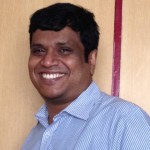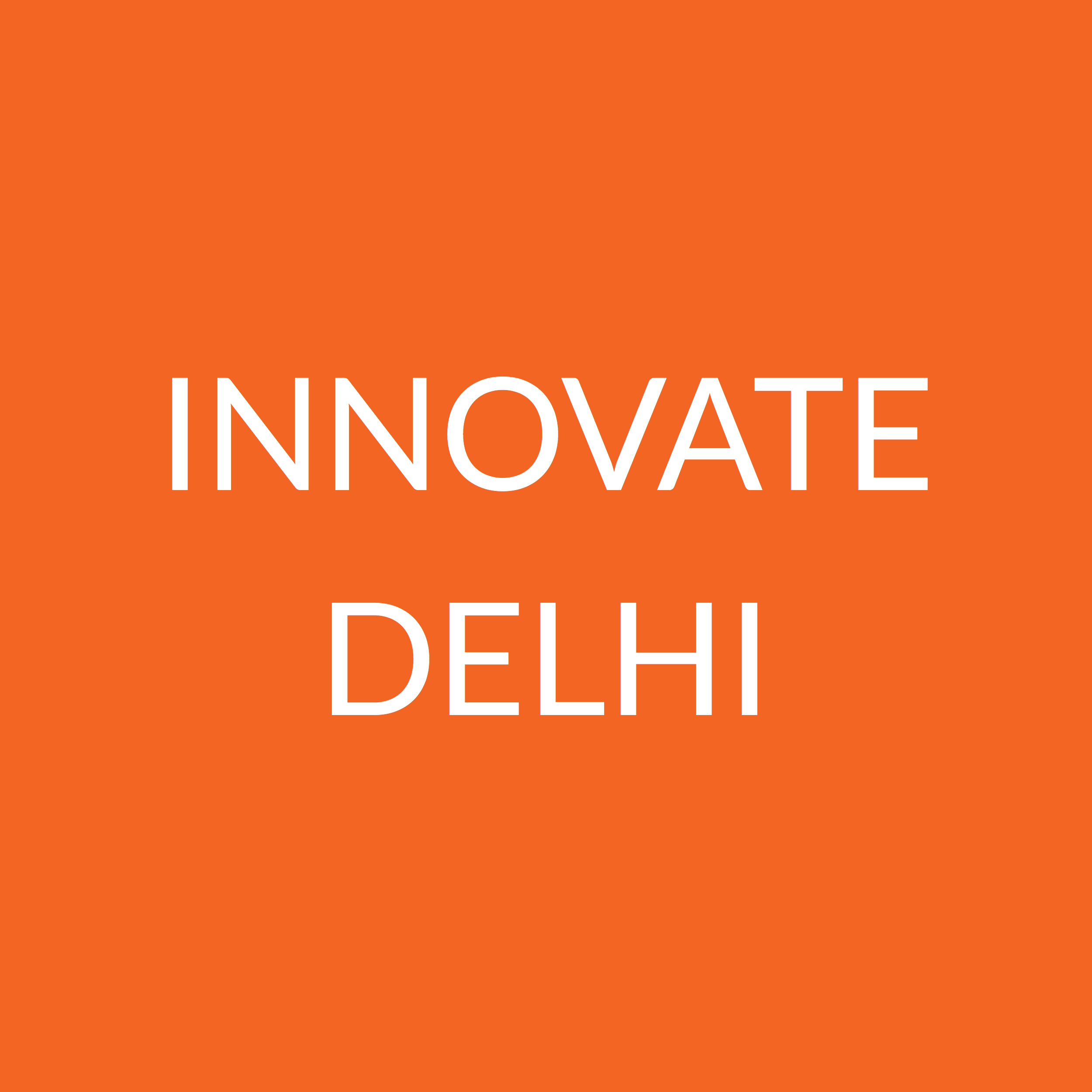Mr. P Rajasekharan (Raja) is the founder of v-shesh, a social impact enterprise that enables people with disabilities find employment. Working with both job-seekers and employers, v-shesh has placed over 90% of its trainees in banks, ITES, hospitality and manufacturing sectors. Prior to founding v-shesh, Raja worked in development sector and project finance at Japan Bank for Regional Cooperation (JICA) and IDBI. He is also the India advisor to American nonprofit Corstone. He has an MS in Public Policy from Carnegie Mellon University, an MBA from NMIMS, Mumbai and is an engineer from VJTI, Mumbai.
[Innovate Delhi] What prompted you to start v-shesh? Tell us about your idea to start a for-profit social enterprise for people with disability?
 [Raja] Shashaank and I knew each other, both personally and professionally for a long time but we had had no idea regarding what we wanted to do. We always thought that we should do something that resolves the dichotomy that we see all the time in India but we never decided on anything for several years. Both of us were doing well professionally – Shashaank was a corporate banker and I had a cushy job in a development bank. We wanted to do something that was professionally challenging, had a clear impact element and was run business like because that is where our strengths lay.
[Raja] Shashaank and I knew each other, both personally and professionally for a long time but we had had no idea regarding what we wanted to do. We always thought that we should do something that resolves the dichotomy that we see all the time in India but we never decided on anything for several years. Both of us were doing well professionally – Shashaank was a corporate banker and I had a cushy job in a development bank. We wanted to do something that was professionally challenging, had a clear impact element and was run business like because that is where our strengths lay.
Then came the question of what we wanted to do. Coincidentally, we got an opportunity to spend time with each other through an assignment not related to our day jobs. That is when we decided that jobs or something that allows people to earn income is very powerful. Additionally, it has a very strong ripple effect among one’s peers, cohorts and society. By providing income to people, we could bridge the opportunity divide that exists in the society around us.
We came back from the assignment with the seed planted in our heads. From there on, it took 5 months for v-shesh to materialize. I worked on the weekends and holidays. By working remotely and part time, we gained some traction and realized that these are issues required far more engagement and close interactions. After 6 months of running small projects we decided to go full time. I quit my job and took up v-shesh full time. I moved to Chennai and the story started in 2008.
Frankly, we were always highly confident and highly motivated. There was no question of failing. We had to succeed.
Did you intend to go full time? Or did you gain traction along the way that inspired you to go full time?
We always intended to go full time. It was a question of when. The only issue I had to resolve was financial security for my family and myself. To study in the US, I had taken some loans. I essentially had to get rid of my loans before I could make the jump!
What other challenges you faced while starting v-shesh?
Being an entrepreneur in India is itself a challenge. Selling the story to your family- your parents, your spouse – is very difficult. It did take a while. As an entrepreneur, you are essentially a loner. So getting the family onboard is nice but also challenging. Ofcourse there were other challenges in building the enterprise but getting the consensus from family was the most important and difficult one.
While having your family alongside you is critical, what is the importance of having a professional network before starting one’s venture?
Both of us did well in our jobs and had good professional relationships that gave us the confidence to go ahead with our plans. We knew that they were people we could fall back on incase something went wrong. Frankly, we were always highly confident and highly motivated. There was no question of failing. We had to succeed. Only health reasons would prevent us from doing so and for that scenario we have insurance. There was a good support base that we were able to leverage in the start.
And once you started, was that network of people helpful or did you have to build a new network of people who were more embedded in the entrepreneurship ecosystem? Were there crossovers in those sets of people?
As bankers we had no idea about disability, hiring, HR and such. But we had our networks that we used to build newer networks. I still continue to have networks from jobs I had fifteen years ago in JICA and IDBI. So it was a combination of the two.
v-shesh is a for profit enterprise which is a relatively new model for social enterprises in India. How did you resolve the for-profit v/s non-profit debate and what would be your adice to an entrepreneur who wants to start a social enterprise?
For us, there was no debate. For profit was what we knew. We knew how markets worked, how to acquire customers, how to deliver goods. At the same time, having worked for a development bank, I knew the structure of NGOs as a legal entity did not serve the needs of the people at the required scale. We knew that our impact would be greater through a business model.But for people entering the system, my advice always has been that it is upto the individual to make the decision. Whatever model you choose, nonprofit or for-profit, the end goal – to serve the customer – should be met. For us, profit was the best way to attract the best talent and capital. So we chose that route.
We knew that our impact would be greater through a business model.
What is the culture at v-shesh? How do you ensure that your big picture values translate into day-to-day operations and you don’t lose sight of your larger goal in dealing with the red tape?
That’s an excellent question! Maintaining the culture of the organization is the biggest responsibility of the founder, especially for an impact enterprise. We are a team of 20 and we are 5 years old. I am proud to say that we have no attrition. Nobody quit v-shesh. We look at people who have passion for serving the unreached segment and some skillset that we can hone over a period of time. We want that careful blend of understanding the customer’s needs as well as that of the workplace, because our job is to put people in the workplace. Usually, everyone spends 3-4 months familiarizing themselves with the culture before the final offer comes. While we have social harmony, we are also a very diverse group. We have six people with disability, people from different geographical regions and people speaking different languages. We know 30 languages amongst my team!
I am proud to say that we have no attrition. Nobody quit v-shesh.
If you were a judge at Innovate Delhi, what would be the top three qualities you will look for in an entrepreneur?
I will look for people with a spirit of enterprise. Secondly, a sound understanding of how to run a business. One need not have done an MBA or an accounting degree but understanding of the basics, such as cashflows, is critical to keep the business running. The third is the ability to build a team. It’s all about the power of the people. If someone can’t build a good team, he can’t build a good enterprise.
What do you when you are not building an equitable workplace?
Spend time with my daughter! Frankly I do v-shesh all the time and the only time I spend away from it is when I am with my daughters and my family. I have very happy brought what I do into my kids and they like what I do which makes it much easier for me.
This blog post was written by Sonal J Goyal for Innovate Delhi Entrepreneurship Academy. Innovate Delhi is a three-week long academy that works with aspiring entrepreneurs to hone their skills in innovation, team-building, and strategy. Applications are due on 1st February. Apply at www.innovatedelhi.com/apply



